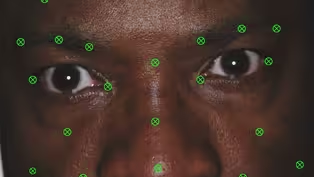
Cannabis and Driving Under the Influence
Special | 6m 50sVideo has Closed Captions
Discover the science behind THC levels, roadsides tests, intoxication and cannabis.
Discover the science behind THC levels, roadsides tests, intoxication and cannabis. Can a roadside test detect cannabis impairment? What blood level of THC constitutes impairment? In some states, laws are being proposed to make driving under the influence of cannabis illegal. Critics question the validity of such laws in the absence of consensus on what constitutes impairment from cannabis.
Problems playing video? | Closed Captioning Feedback
Problems playing video? | Closed Captioning Feedback
WKAR Specials is a local public television program presented by WKAR

Cannabis and Driving Under the Influence
Special | 6m 50sVideo has Closed Captions
Discover the science behind THC levels, roadsides tests, intoxication and cannabis. Can a roadside test detect cannabis impairment? What blood level of THC constitutes impairment? In some states, laws are being proposed to make driving under the influence of cannabis illegal. Critics question the validity of such laws in the absence of consensus on what constitutes impairment from cannabis.
Problems playing video? | Closed Captioning Feedback
How to Watch WKAR Specials
WKAR Specials is available to stream on pbs.org and the free PBS App, available on iPhone, Apple TV, Android TV, Android smartphones, Amazon Fire TV, Amazon Fire Tablet, Roku, Samsung Smart TV, and Vizio.
More from This Collection
Produced in collaboration with NOVA
Video has Closed Captions
Will next generation batteries accelerate adoption of electric vehicles? (6m 29s)
Twice as Likely: Black Infant Mortality Rates in the U.S
Video has Closed Captions
Why are Black infants twice as likely as White infants to die before their first birthday? (6m 4s)
Video has Closed Captions
Exploring 'zoom fatigue' and the negative effects of video conferencing technology. (6m 35s)
Algorithmic Injustice? Racial bias and facial recognition
Video has Closed Captions
A tool for law enforcement, critics argue that facial recognition tech is discriminatory (7m 15s)
Providing Support for PBS.org
Learn Moreabout PBS online sponsorship(upbeat music) - [Narrator] Even though cannabis is illegal under federal law, classified in the same category as heroin and ecstasy, several states including Michigan have legalized cannabis for medical and recreational use.
But it remains illegal everywhere to drive while under the influence of cannabis, even though there is no accurate roadside test for impairment.
(upbeat music) - People need to be aware that despite the amount of time that has passed between when they ingested and when they get pulled over by a police officer and despite the recreational use of marijuana having been legalized in Michigan, you could still get convicted, even if you are not currently under the influence.
(upbeat music) - [Narrator] Some states have already established a legal threshold of five nanograms of THC per milliliter of blood.
- Colorado was the first state to legalize marijuana recreationally.
So really we were the first state legislature to really grapple with this issue of setting a limit when it comes to what limit does impair your ability to drive under the influence of cannabis.
- [Narrator] Michigan state representative, Pamela Hornberger, introduced a bill that would set a legal limit at five nanograms, calling for stronger prosecution of drivers with THC in their blood.
Requests for comment from Hornberger's office went unreturned.
- [Sam Cole] States are looking to us to see what Colorado did.
How did Colorado handle this?
And that's why we are seeing other states also adopt this five nanogram limit for better or for worse.
- The science behind the five nanogram limit of THC isn't there.
- [Sam Cole] When I say for better that we're seeing a higher percent of convictions about the five nanograms.
So obviously, juries find that five nanogram limit really useful.
For worse, we don't have some hard science that really links a nanogram limit to impairment.
- The critical factor is whether the individual is actually impaired and not what their blood level of delta-9-THC is because there is very poor correlation between the blood levels and impairment.
- Ultimately, when it comes down to the numbers, the numbers are one part of it.
So when we start talking about things like nanograms or 0.08 for alcohol, or really any other substance that we're checking for, that becomes one more clue.
It becomes one more piece of evidence.
(upbeat music) - I absolutely think that this five nanogram threshold that's making its way through Michigan's legislature could feed into the disparate treatment of minorities.
Depending on the neighborhoods that these police offices are working in, once they conduct that test, they are the gatekeepers to the criminal justice system and ultimately determine who enters.
(upbeat music) - [Narrator] It remains unclear how legalizing recreational cannabis affects car crash rates.
A 2021 study found a correlation between legalization and a spike in car crash rates and fatalities in five states.
Other research shows recreational legalization alone have little effect on traffic fatalities.
Presently, there isn't enough data to know for sure what role legalization plays in traffic accidents.
A study from the National Highway Traffic Safety Administration looked at the impact of drug and alcohol impairment on 3,000 car crashes.
By one measure, drivers with THC in their systems were 25% more likely to be involved in an accident.
But this estimate excluded known risk factors like age, gender, and alcohol consumption.
So how does THC impact your driving?
- THC is the main psychoactive part of cannabis.
And this is the chemical in the substance that affects the brain.
It changes our cognitive functioning.
It makes us think a little slower, react a little slower.
(upbeat music) - [Narrator] The effects of cannabis consumption can vary and impairment is hard to measure, but some research suggests the impact of cannabis can last anywhere from two to 10 hours.
- When a person smokes cannabis, it enters your system pretty quickly.
It goes from the vapor that's inhaled into the lungs, into the bloodstream causing high within a few minutes.
When someone takes an edible, it's going to your stomach first, the gastrointestinal system, and has to be broken down and then enter the bloodstream.
And so the high then comes maybe an hour or two later.
So there's a difference in the type of cannabis you take and how quickly it might cause impairment.
(upbeat music) When we're thinking about comparing cannabis impairment with alcohol impairment or how do these substances affect the body, especially with driving, the drunk person, the person who's consumed a lot of alcohol, they're weaving lanes, they're running all over the median, they're hitting guardrails, and they're blowing through red lights.
- Cannabis impaired drivers, they're often aware they're impaired, which is not seen with most alcohol impaired drivers.
If anything, they tend to drive slower, but they will weave their time estimation is impaired.
- If you think about when we're driving, we need to be able to respond quickly, be coordinated, and make quick decisions when unexpected events happen.
THC can kind of slow that down, make us a little more inefficient.
(upbeat music) - [Narrator] So how is cannabis processed in the body in comparison with alcohol?
Cannabis is fat soluble.
Alcohol is water soluble.
- Once alcohol is absorbed because it's water soluble, it distributes evenly throughout our body and our body are 90% water.
So that the amount of alcohol in your blood, in your breath, which is moist, and in your brain are all pretty much equivalent to each other.
That concentration of alcohol in your body equates very readily to behavioral impairments.
(upbeat music) The situation with cannabis is very different.
THC is fat soluble, and it distributes around the body and is rapidly sucked into parts of the body that have higher fat content.
And then once it's in your blood, it hangs around in your body for up to a couple of weeks.
So the amount in your brain and in your blood are not equivalent, so measuring THC in someone's blood doesn't equate to behavioral impairment.
(upbeat music) - So there's no great scientific test that 100% tells us the answer is a person impaired, you know, at this moment from cannabis?
(upbeat music)
Support for PBS provided by:
WKAR Specials is a local public television program presented by WKAR

















